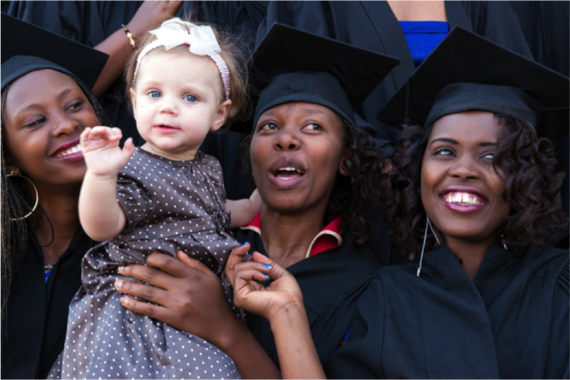
I moved to Rwanda from the United States when I was 21. I didn't have any job plans, or a single friend in the country.
I wanted to start a life in Rwanda, a country still recovering from the devastating 1994 genocide in which one million innocent men, women, and children were slaughtered.
When I arrived in the capital of Kigali in 2006, Rwandans were intensely focused on moving forward, passionate about reconciling the perpetrators of the country with their victims, building modern institutions on traditional values, and creating prosperity for all of its citizens.
I spent the next two years volunteering with street children, learning the local language, Kinyarwanda, and co-founding a non-profit organization to provide education to orphans.
In 2008, I received an intriguing email from England. Dave Hughes, a Brit raised in Hong Kong, inquired about volunteer opportunities with my organization. After a stream of emails and a few phone calls, Dave quit his corporate job in property development and moved to Kigali to join our team.
Dave and I were roommates in a little house with no running water and periodic electricity. It was a short walk to the National Stadium, which was used by the United Nations as a refugee camp during the war. We spent many nights with our Rwandan friends drinking warm beer, discussing regional politics, and envisioning how Rwanda could become a model of reconciliation and economic development.
In 2008, Rwanda achieved a monumental milestone: the first county in the world to have a female majority in Parliament. (Women make up 18 percent of the U.S. Congress).
But the vast majority of Rwandan women weren't joining the ranks of political power, or even leaving their subsistence agriculture farms. Only 30 percent of Rwandan college students were female. Most young women drop out of school at a young age to care for their families and do household chores. Without an education or skills, they live in rural areas and survive on less than $2 a day.
This is not just an issue of human rights or social justice: it's an economic issue. The World Bank has positively correlated the number of girls in secondary school with a country's per capita income growth. Women invest 90 percent of their income in their families; meanwhile, men only invest between 30-40 percent.
With no formal background in education or fundraising, Dave and I decided to open Rwanda's only college for women, the Akilah Institute.
Our mission was to create an academic institution that would provide a bridge from education to meaningful employment and to empower young women from low-income communities to launch professional careers and support their families.
The Akilah Institute opened in January 2010. We had no textbooks or computers and only a few thousand dollars in the bank. We didn't know how we would make payroll the next month, but we steadfastly clung to our vision.
Akilah is now an accredited college and we offer Diplomas in Entrepreneurship, Information Systems, and Hospitality Management, the three highest-growth sectors of the East African economy. Sixty-eight percent of Akilah students are the first women in their families to attend college. Most enter timid and unsure of themselves, but graduate as determined, empowered, confident young women, ready to launch their careers and reinvest in their families and their country. Ninety percent of alumnae find jobs within six months of graduation, where they earn incomes that are five times more than the national average.
I turned 30 this summer. I feel a deep sense of gratitude to Rwandans for showing me the power of forgiveness and hope for a brighter future. Dave and I are married, and we bought our first home just across the valley from Akilah. Our 1½ year old daughter, Lorraine, loves to spend time on campus with our students.

In January 2014, we opened a second campus in Burundi, a small country that shares Rwanda's southern border. We also doubled our student body, stretching the capacity of our dedicated faculty and staff to do even more to empower young women to reach their full potential. Our vision is to build future generations of women leaders and professionals by opening a network of campuses across East Africa and graduating 1,000 students by 2020.
This fall, you can take part in realizing this vision. We invite you to attend our 5 Annual Metropolitan Safari and meet one of our alumnae, Nadine Niyitegeka. Recently profiled in the Washington Post, Nadine represents for many of her former classmates the future that they can all aspire to. She is one of the most inspiring women I know, and she is proving to the world that when you educate a woman, you truly educate a nation.